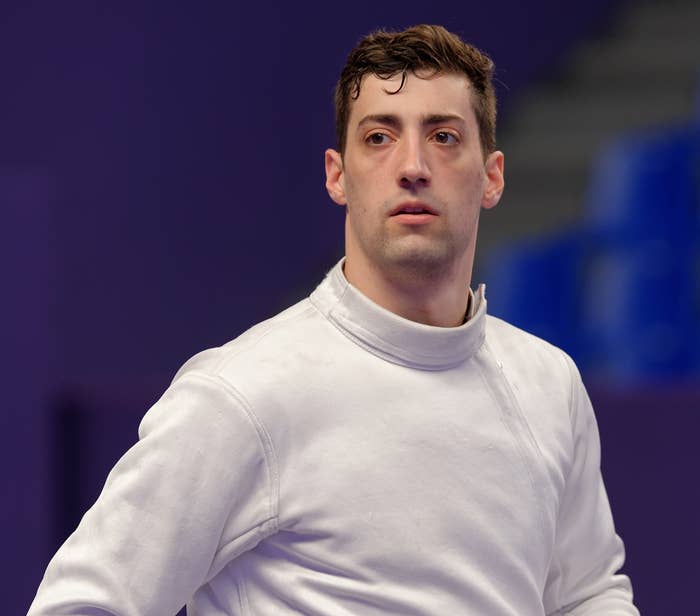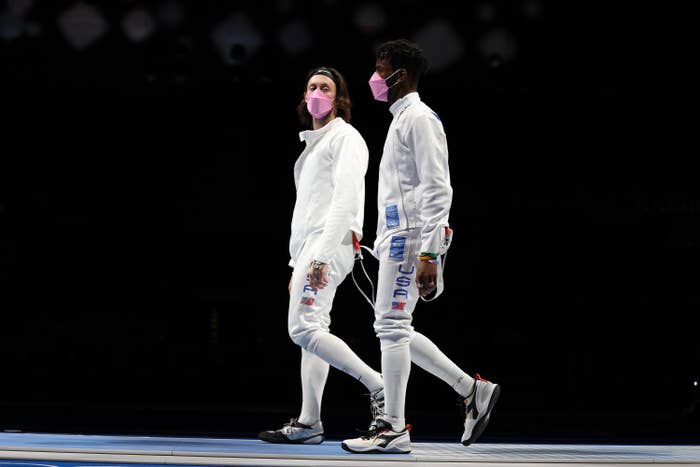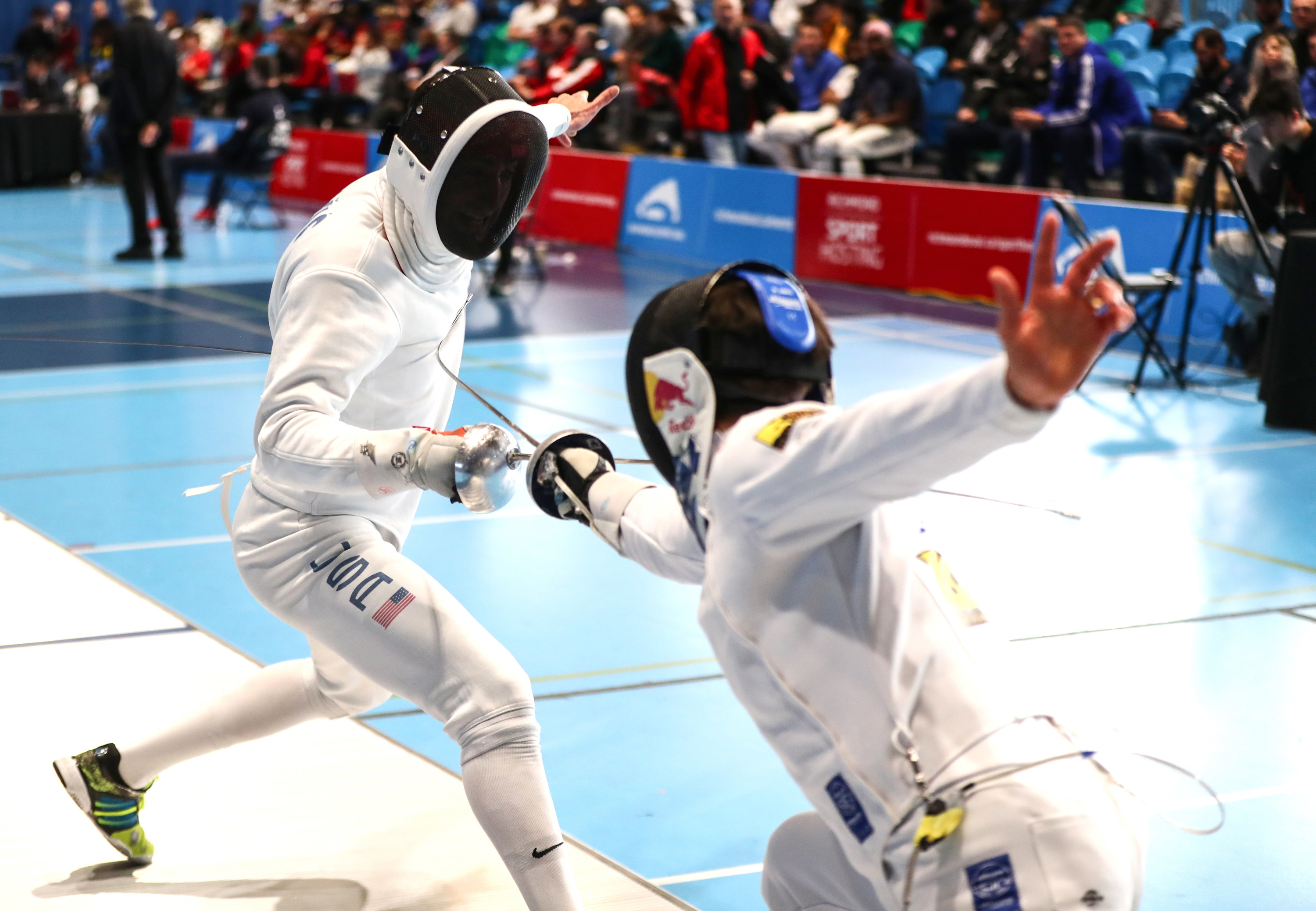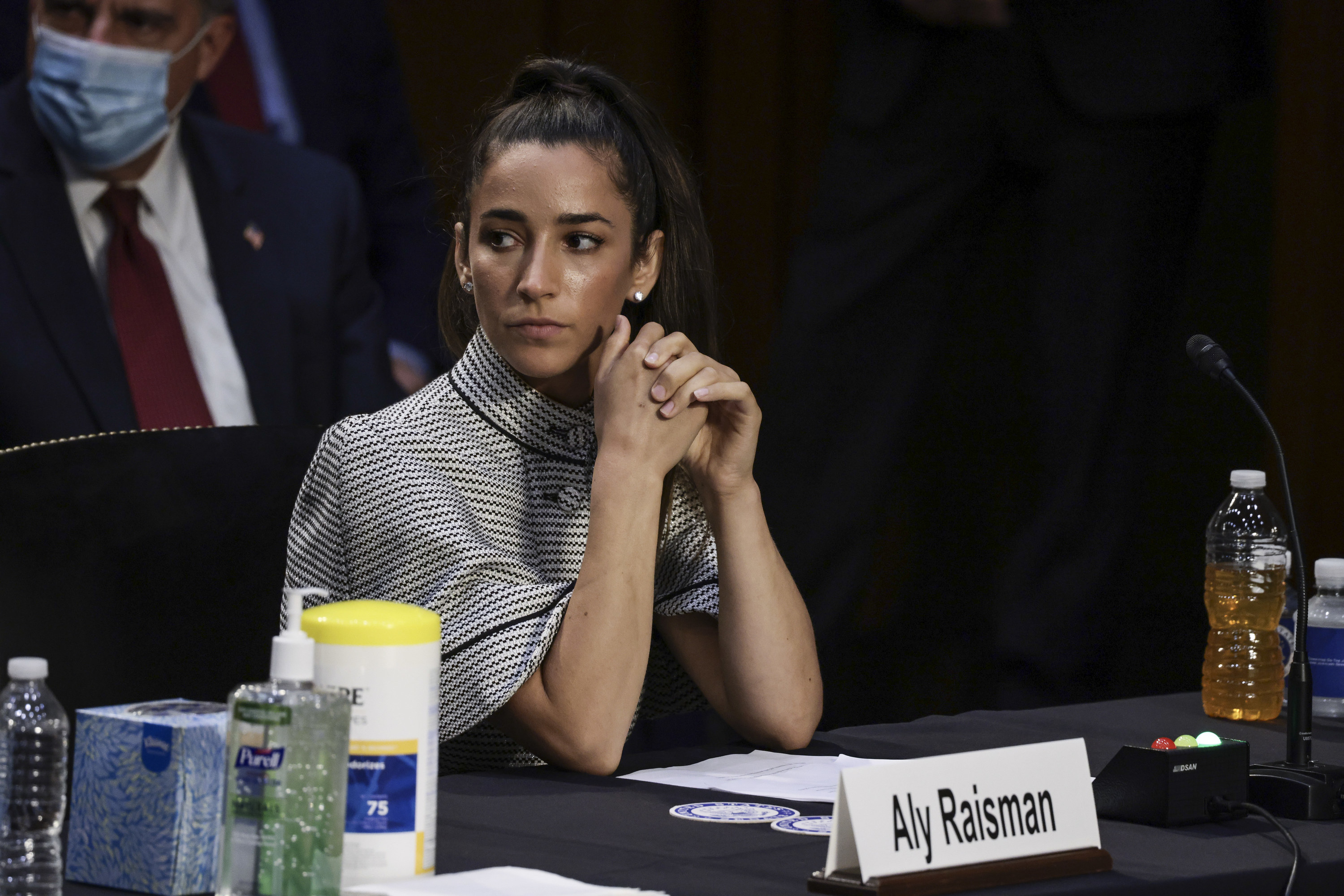
After outcry from members of its own Olympic team, USA Fencing is blocking one of its top athletes who is facing multiple accusations of sexual assault from an upcoming competition — a step that gets ahead of the national system for addressing misconduct within athletic organizations, but fencers and officials say is necessary to keep the sport safe.
Alen Hadzic, a 29-year-old elite fencer from Montclair, New Jersey, is currently being investigated after at least six women filed claims of sexual misconduct, including rape, with the US Center for SafeSport, which took over abuse and misconduct investigations from individual sports organizations in 2017 after revelations of the widespread failings within USA Gymnastics. BuzzFeed News previously reported how, in spite of women speaking up again and again, Hadzic was able to reach the highest levels of his sport. USA Fencing in July acknowledged to BuzzFeed News it has known for eight years that Hadzic was suspended from his university after an investigation into a fencing teammate’s accusation of sexual assault. In a statement to BuzzFeed News, the organization explained that it did not take action at the time because its policies then did not require it to do so.
But now, the national governing body is refusing to register him for a competition in Colmar, France, at the end of the month, and officials said they intend to take the same unprecedented action for future tournaments, including some of those in the US. The move highlights a gray area between sports organizations and the independent body tasked with overseeing them when it comes to sexual assault cases. USA Fencing is, in a sense, setting a precedent that it may still hold athletes to conduct standards by blocking Hadzic’s participation from competition — even while an independent sexual misconduct investigation is ongoing.
In a statement, USA Fencing said that it “reserves discretion as to which athletes it will register into competitions.”
“The organization must be mindful of many factors, including how registration of individuals reflects on USA Fencing, its values and the interests of other athletes. USA Fencing does not intend to enter Mr. Hadzic in any competitions for the foreseeable future except to the extent it is legally compelled to do so.’’
Hadzic’s attorney, Michael Palma, did not return BuzzFeed News’ request for comment, but he told USA Today, which first reported the restriction, that “he will fight to protect the fencer's right to participate.” Both the athlete and his attorney have repeatedly denied the various accusations against him, likening them to a witch hunt. In an interview with Business Insider, Hadzic threatened retaliation.
Fencers and other members of the organization have mixed feelings about USA Fencing’s extraordinary move. While they’re relieved there has been some action, they also see it as a performative gesture that came way, way too late.
“I’m relieved but confused as to why this didn’t happen before the Olympics?” said a fencer who competed in Tokyo. “It makes no sense to me.”
During the Olympics this past summer, BuzzFeed News reported that Hadzic was allowed to travel to Tokyo as an alternate on the men’s epee team despite an ongoing investigation into serious accusations of sexual misconduct by several women, including a teammate. Though SafeSport initially suspended him, an arbitrator ruled in Hadzic’s favor and allowed him to take the coveted spot on Team USA. His presence caused an uproar in the fencing community and among his teammates, who unanimously signed a statement calling for him to be banned for their safety and well-being. As cameras rolled and the world watched ahead of one Olympic event, his male teammates stood beside him wearing pink masks in solidarity with sexual assault survivors, an act of protest against a fellow athlete that an Olympic expert told BuzzFeed News was “rare and highly unusual.”

USA Fencing officials had scrambled to create, for the first time ever, a safety plan for the Games that was supposed to keep him away from women, especially those on his team. But as four Olympic athletes told BuzzFeed News, it didn’t work. They saw Hadzic daily and in close proximity — at the small training center, in line to get into the Olympic village, at the gym, and on shuttles — despite rules that stated he would travel separately. The Lily reported that one female fencer was even put in the same hotel as Hadzic, right down the hall.
Officials involved in the creation and execution of the safety plan have acknowledged to BuzzFeed News that the process and communication with athletes “could have been handled better.” In the wake of the turmoil, several top officials, including longtime CEO Kris Ekeren, have left or announced their impending resignations.
“These were unique circumstances for our organization. In retrospect, USA Fencing should have provided more information about the safety plan and its implementation to the athletes in Tokyo,” a spokesperson said. “As an organization, the safety and well-being of USA Fencing members is our top priority, and we have — at times — failed to communicate that adequately. We apologize to our athletes who undeservedly had to endure the many distractions and concerns for their own safety while trying to prepare for the most important competition of their lives.”
USA Fencing has contended, in interviews, statements, and documents reviewed by BuzzFeed News that with SafeSport taking over “exclusive jurisdiction” of sexual misconduct investigations, its hands were tied in keeping Hadzic from the Olympic team or banning him from the organization. Though it’s now taking steps to keep him from some future competitions, critics have said it should have acted sooner — particularly since the organization was first warned about one of Hadzic’s alleged assaults nearly a decade ago.

In October 2013, the lawyer of a fellow member of USA Fencing, who was also Hadzic’s teammate at Columbia University, told top officials that a month before, the university had suspended Hadzic for a year following a formal investigation into her claim of sexual assault. In a letter to USA Fencing, the woman’s lawyer advised USA Fencing to bar him from competitions, writing that “Mr. Hadzic’s conduct does not comport with the standards set by USA Fencing.”
In their response, the organization explained that it had reviewed all of the documents but would not take any action because Hadzic had not violated any of its policies. Because the then-college athlete was not a coach or authority figure, and because “the alleged conduct” did not occur at a USA Fencing event, the organization said it was not in the position to take any disciplinary action against him.
The woman’s attorney pushed back, calling the decision an “intentional misreading” of the organization’s own Athlete’s Code of Conduct, which prohibited sexually inappropriate behavior between athletes.
“A plain reading of this Code of Conduct excerpt renders Mr. Hadzic unfit and thus ineligible to participate,” the attorney wrote. “How can the [United States Fencing Association], in good conscience, claim its hands are tied and permit the participation of a known rapist into its athletic midst?”
The organization never wrote back. Due to the ongoing investigation into Hadzic, USA Fencing cannot comment about Hadzic’s case, but top officials have reiterated that at that time, the organization didn’t have a policy that specifically addressed what to do if an athlete abused a peer. Also, they argued, the athlete code of conduct only applied to the national team, which Hadzic was not yet on. However, USA Fencing’s bylaws at the time did state that “it is a violation of USFA policy for any employee or member of the USFA to engage in sexual harassment.”
On Thursday, Ekeren, who signed the correspondence to the woman’s lawyer as interim USA Fencing CEO, told BuzzFeed News that she wishes things had been done differently.
“As a woman and a parent, this has been heartwrenching,” she said in a statement. “Back in 2013, USA Fencing's policies led to the determination made with regards to Mr. Hadzic. I truly wish that our policies at the time had been different. Our organization has since revised them, and had we been operating under the current policies back at that time, a different decision may have been made.”
In the following years, Hadzic would go on to compete in and continue to excel at a slew of national and world competitions, despite being temporarily suspended in 2019 for other bad behavior at a competition in Columbia. His position on the US Olympic team placed him at fencing’s highest level, and he has said he is now aiming to again compete in the Paris Games in 2024.
Whether he is banned remains in the hands of SafeSport, which has yet to deliver a verdict in the high-profile probe, which began in May. The situation is another example of how, despite years of development and a recent doubling of its budget to $20 million, the national system is still imperfect and not up to the task of running timely investigations across the wide, complicated world of US Olympic sports organizations.
To be fair, SafeSport was set up to fail. Created by the United States Olympic and Paralympic Committee to enforce anti-abuse policies, the agency was meant to streamline the reporting and investigative process, taking power away from individual national governing bodies, who were failing to properly punish and get rid of abusers within their ranks. But it launched with just three full-time employees to investigate thousands of complaints, which were filed without any statute of limitations. It now has 100 employees, has gotten through 40% of its backlog, and has sanctioned 1,100 people. So far this year, the center has received close to 3,000 reports, which must be handled by 30 full-time investigators and about a dozen contractors. Cases like Hadzic’s, where the allegations took place before the center existed, can be the hardest to tackle.
There is still no timeline for when SafeSport will conclude its probe. In emails reviewed by BuzzFeed News, an investigator told parties involved last week that “the case is still ongoing and that information from the involved parties is still being gathered.”
“Investigations into sexual misconduct are sensitive and often complex, particularly those that involve allegations going back many years and that predate the Center — getting it right must be the priority,” Daniel Hill, a SafeSport spokesperson, told BuzzFeed News.
Hill declined to comment specifically on Hadzic’s case.

Last month, gymnastics star Aly Raisman said at a Senate hearing that in spite of the intentions for SafeSport to be independent, she doesn’t trust it because it was created and funded by the very organization it's supposed to be keeping in line: the US Olympic Committee.
“I’m trying to be respectful here: I don’t like SafeSport,” she said. “I hear from many survivors that they report their abuse and it’s like playing hot potato, where somebody else kicks it over to somebody else and they don’t hear back for a really long time.”
Nearly 10 other fencers who filed complaints with SafeSport against their coaches and peers told BuzzFeed News the same thing. Their cases drag on for months, usually without any communication or updates, leaving both parties in limbo, according to emails and case files reviewed by BuzzFeed News. In one instance, a woman filed a report against a referee in January 2020 and was assigned an investigator, but it took 14 months before they started the interview process. She ended up dropping her case in April because waiting was too much for her to handle.
“It is evident that SafeSport generally misunderstands the complicated nature that is sexual assault,” Lena Johnson, an athlete whose case against another Olympic fencer took almost a year to conclude, told BuzzFeed News. “SafeSport is like one big HR department that’s trying to monitor all sports across the nation. How is that supposed to work?”
